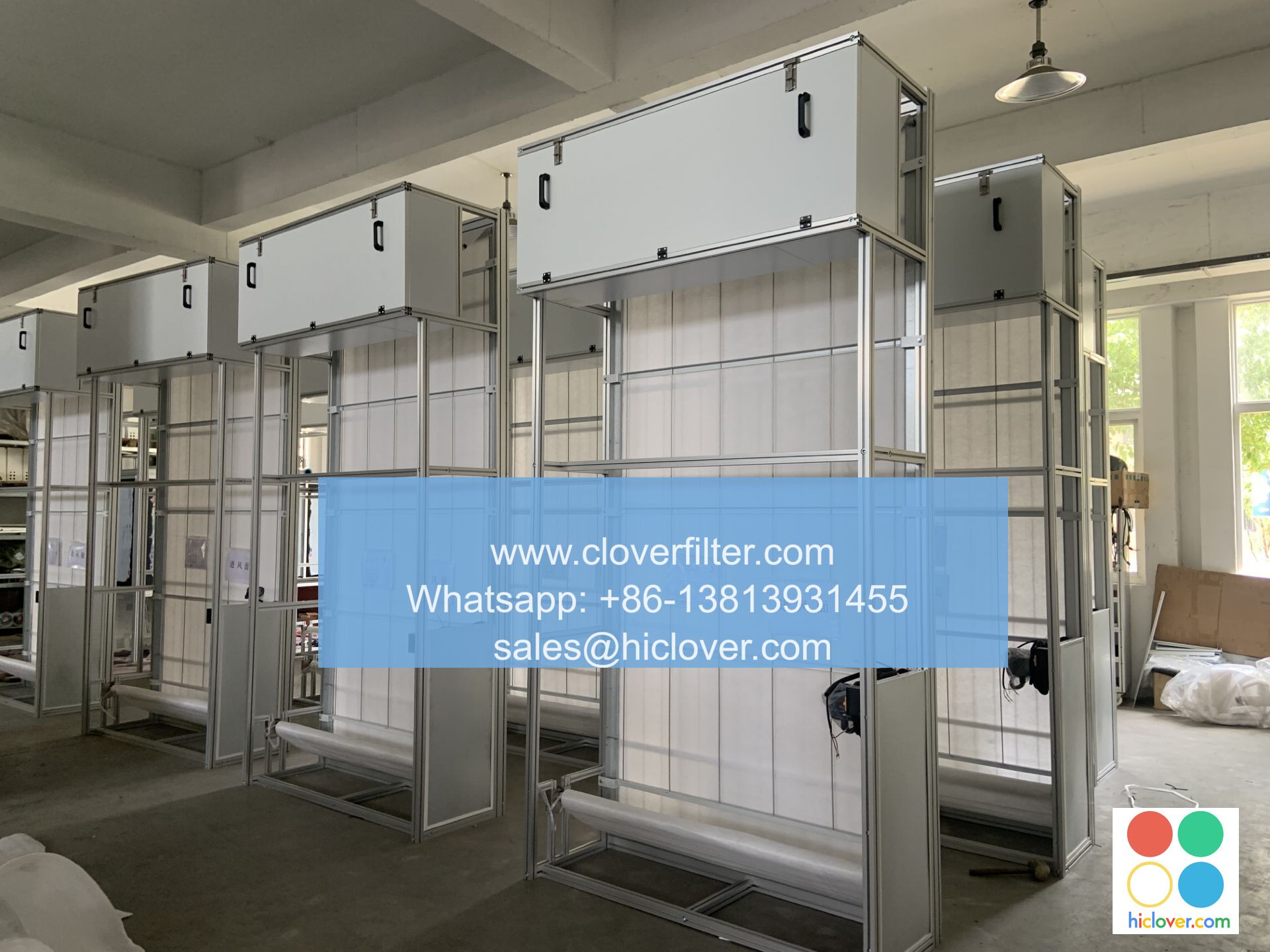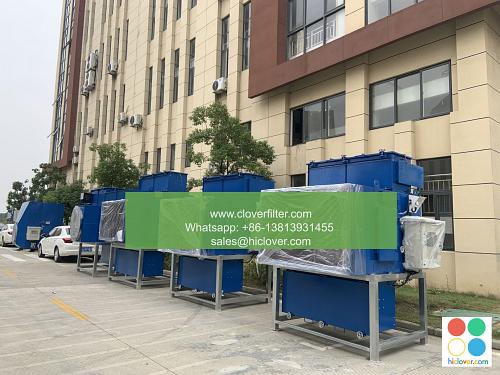Hamilton Steel Plant’s Automated Air Filtration System: A Leap Forward in Industrial Hygiene

The Hamilton Steel Plant has taken a significant step towards improving industrial hygiene with the implementation of an automated air filtration system. This cutting-edge technology is designed to remove pollutants and contaminants from the air, providing a safer and healthier environment for workers and reducing the plant’s environmental impact.
The automated air filtration system uses advanced filters and sensors to detect and remove airborne particles, including dust, smoke, and other harmful substances. The system is fully integrated with the plant’s existing ventilation system, ensuring that clean air is circulated throughout the facility. This not only improves the air quality but also reduces the risk of respiratory problems and other health issues associated with poor air quality.
One of the key benefits of the automated air filtration system is its ability to operate continuously without manual intervention. The system is equipped with advanced sensors that monitor air quality in real-time, adjusting the filtration process as needed to ensure optimal performance. This means that the plant can maintain a consistent level of air quality, even during periods of high production or when working with hazardous materials.
In addition to improving air quality, the automated air filtration system also helps to reduce maintenance costs and minimize downtime. The system is designed to be self-cleaning, with automatic filter replacement and cleaning schedules to ensure optimal performance. This reduces the need for manual maintenance, freeing up staff to focus on other critical tasks and minimizing the risk of equipment failure.
The implementation of the automated air filtration system is also expected to have a positive impact on the plant’s environmental sustainability. By reducing airborne pollutants and contaminants, the system helps to minimize the plant’s environmental footprint and reduce its impact on local air quality. This is particularly important for industries like steel production, which have traditionally been associated with high levels of air pollution.
The Hamilton Steel Plant’s decision to invest in an automated air filtration system is a testament to the company’s commitment to industrial hygiene and environmental sustainability. The system is a significant improvement over traditional air filtration methods, which often rely on manual intervention and can be less effective at removing pollutants and contaminants.
In terms of cost savings, the automated air filtration system is expected to pay for itself over time through reduced maintenance costs and improved productivity. By providing a healthier and safer working environment, the system can also help to reduce absenteeism and improve employee morale, leading to increased productivity and better overall performance.
The automated air filtration system is also highly customizable, allowing the plant to tailor the system to its specific needs and requirements. This includes the ability to integrate the system with existing ventilation and air quality monitoring systems, as well as the option to add additional features and upgrades as needed.
Overall, the Hamilton Steel Plant’s automated air filtration system is a significant leap forward in industrial hygiene and environmental sustainability. The system’s advanced technology and automated operation make it an ideal solution for industries looking to improve air quality and reduce their environmental impact.
Conclusion
In conclusion, the Hamilton Steel Plant’s automated air filtration system is a state-of-the-art solution that is set to revolutionize industrial hygiene and environmental sustainability. With its advanced technology, automated operation, and customizable design, the system is an ideal choice for industries looking to improve air quality and reduce their environmental footprint. As the steel industry continues to evolve and grow, it is likely that we will see more plants adopting similar technologies to improve their operations and reduce their impact on the environment.
FAQs
Q: What is the purpose of the automated air filtration system?
A: The purpose of the automated air filtration system is to remove pollutants and contaminants from the air, providing a safer and healthier environment for workers and reducing the plant’s environmental impact.
Q: How does the automated air filtration system work?
A: The system uses advanced filters and sensors to detect and remove airborne particles, including dust, smoke, and other harmful substances. The system is fully integrated with the plant’s existing ventilation system, ensuring that clean air is circulated throughout the facility.
Q: What are the benefits of the automated air filtration system?
A: The benefits of the automated air filtration system include improved air quality, reduced maintenance costs, minimized downtime, and a positive impact on the plant’s environmental sustainability.
Q: Is the automated air filtration system customizable?
A: Yes, the automated air filtration system is highly customizable, allowing the plant to tailor the system to its specific needs and requirements.
Q: What is the expected return on investment for the automated air filtration system?
A: The automated air filtration system is expected to pay for itself over time through reduced maintenance costs and improved productivity.

